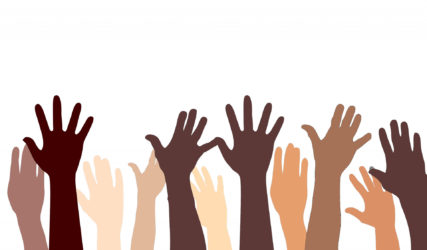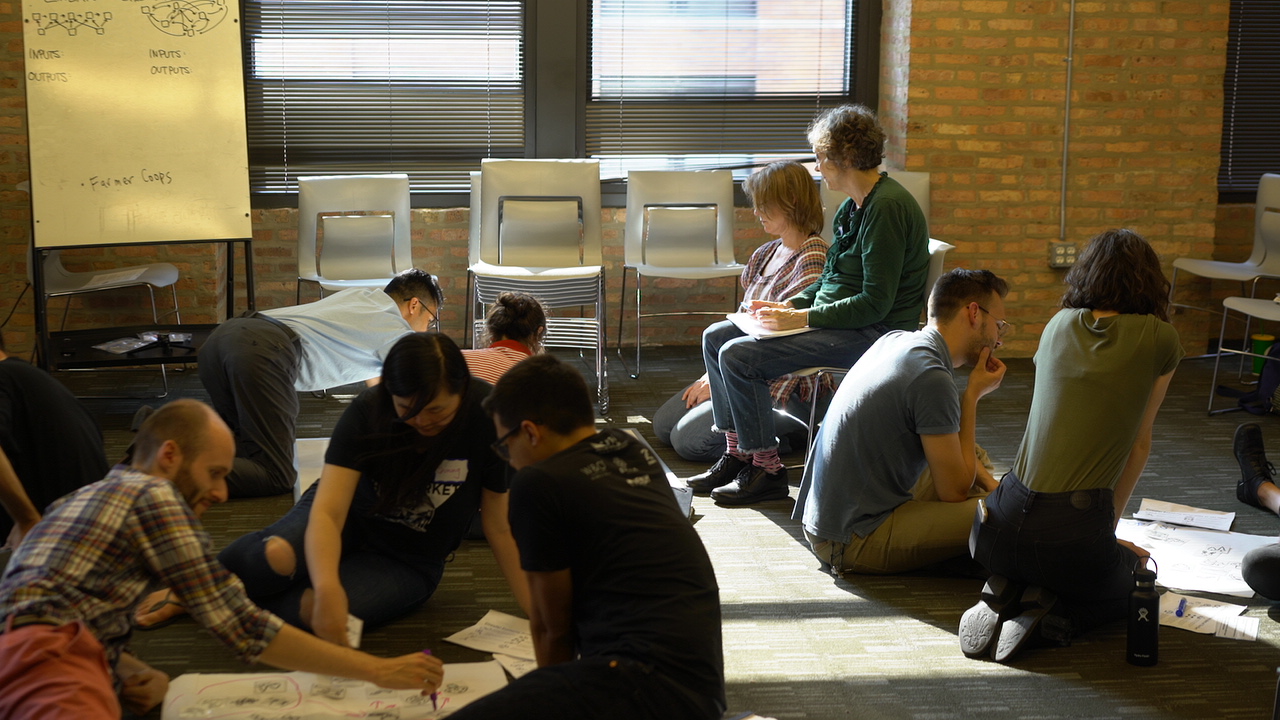– Elisha: Expert in trying things out because we all are; CUB: Citizens utility board
African center term: yey bo? yey bo! (all good?, all good!)
Hearing affirmation of movement but can have engagement back and forth
Thinking work group session to push forth challenges and ideas to share what we know and what we’re learning so we can cover something with the strength of 70 people! That’s what we’re doing today. We will talk about as we go through terms, solutions, and tools.
Define some of the terms:
Jessica Gordon wrote a book called Collective Courage with is a go to source for the history of coops in black coop economics dating back to the 1860s. Talks about cooperative and mutual cooperatives since the 1860s
Important bc often the coop conversation is coming from white people
As we’re trying to do work, especially low income, it is important to understand the history of coops in our communities. This is important bc it goes all the way back to indigenous “American” and African cultures. It doesn’t just come out of Europe, it comes from so many communities for thousands of years.
Interlocking cooperative:
Credit union should interlock with a coop business by giving it a loan and that business should interlock with other cooperative businesses
Credit union CU gives access to capital
CU connects to a land trust connects
worker owned industry
food coops
housing coops
Community solar gardens
Child care coops
Elder care coops
Time banking coop? Time and energy is a form of capital
For instance, the housing coops gets its food from the food coops, they all bank at the credit union. When people go to work they use the childcare coop.
We need each other.
This work takes time, 20-40 years for starters.
– Buffalo is doing this. Push Buffalo. They have a CLT where they have work call where day laborers can come in.
– Cooperation Jackson: fractal organization like above. High tech meets worker coops. Plan is to create an interlocking economy
Ask Brother Kali? (ask Sean for this person’s name)
-Dudley street neighborhood initiative Started bc of efforts to fight gentrification, used powers of eminent domain to acquire land. Owned by absentee landlords. Chicago has an ordinance about how if there is a blighted property, you can take it over. Look this up.
-Cleveland coops where the key thing was the leveraging the purchasing power of the university to feed back to the community. Called the Evergreen. Commonly refereed to as the public private partnership, coop academy model, the non public private partnerships anchor institutes model where you get places to source materials from cooperative sources.
-Ad hoc/informal, so much you can do without incorporation
You can work to figure out your unique model with the help of cooperative lawyers
Jessica Gordon Nembh…
Helps us bring a more humble approach to the work and we have to understand that we are also trying to reeducate our communities from something they are so disconnected from too.
Connected to the principle of decolonization
- Land reform: statutory division of agricultural land and it’s reallocation to landless people, changing the laws and regulations of land ownership, can refer to transfer of ownership from wealthy to non wealthy, may be with or without compensation, may entail from individual to government owned
- Land/wealth redistribution style
- Agriculture
- Land reparations for indigenous, black, and latinx people, hard to imagine in our political reality, but also necessary
- Individuals with titles – limitations to the decolonization conversation
- Land tenure security: refers to the right of individuals to effective protection from their gov about eviction, tenure refers to the status of individuals in relation to property, an element of property rights to stay and make use of the land. In urban settings, land tenure is often insecure for the poor and also insecure for women in multiple contexts
- Contractual basis amongst a group of people on how the land is going to be managed.
- Land sovereignty: the right of working peoples to have effective access to, use of, and control over land, right of communities and peoples democratic use and equitable use and benefit from the land.
- Land sovereignty is hard to conceive of in this county
- Right to land along with control and use, community abandonment act, taking over blighted properties
- Collective decision making and liberating land
- Trying to get away from the responsibility/link to capital
We should be able to define reciprocity and work on our own terms. Detroit is starting to work this way out of necessity.
Capitalism doesn’t mean the market. There can still be exchanges under a different system.
Tools for our tool bank:
- Community land trust
- Land bank
- Land in Cook County sitting on thousands of acres, ready to give this away to entities, social entrepreneurs, L3Cs, folks that can do something with this land that we’re not doing bc we can’t move fast enough, we don’t have the capacity.
- Community Development Financial Institution: EDFI
- combination between the land trust and the credit union. Financial institution responsible for a community.
- Can be for good or for bad, gentrification or anti.
- Real Estate Coop
- Credit Union
Municipalism, Fearless city, Barcelona, Jackson, MS
The commons
How to imagine the city as a collective platform
The future is public, bringing together public sector unions

